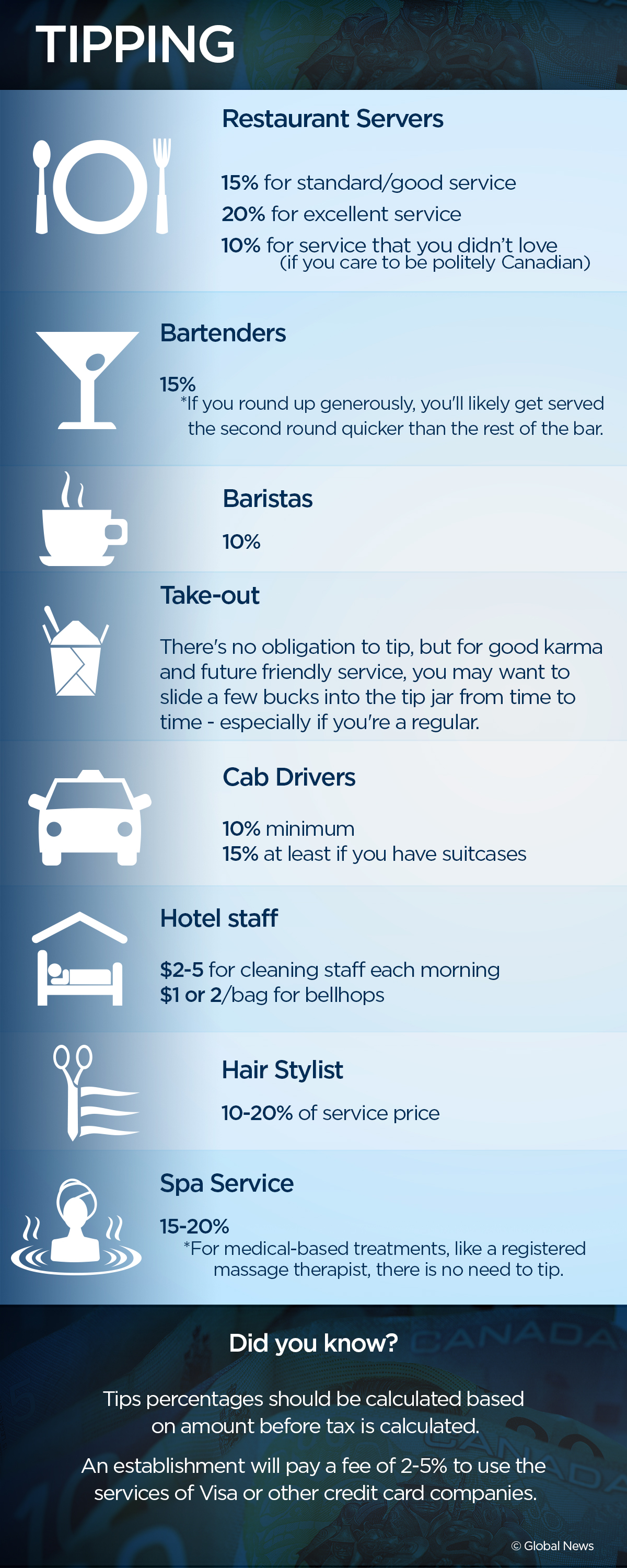New York restaurateur Danny Meyer’s decision to eliminate tipping at his establishments ignited a debate across the continent: to tip or not to tip?

Anyone who’s worked in the hospitality industry is likely in favour of tipping. They know that servers don’t get a high hourly rate — most get paid minimum wage and rely on tips to support themselves. If you don’t leave a tip, servers might end up having to pay to serve you. That’s because restaurants usually have a mandatory “tip out” policy, which ensures servers share a portion of their ring out with the rest of the team, including bartenders, kitchen staff and hostesses.
That’s where the “gratuity-averse” diners usually say something like, “Why should I have to make up for the fact that their employer doesn’t pay them enough?”
That camp would likely be in favour of Meyer’s plan to increase his staff’s wages, compensating them, as he termed it, “equitably, competitively and professionally.”
“By eliminating tipping,” he said, “our employees who want to grow financially and professionally will be able to earn those opportunities based on the merit of their work.”
In other words, they won’t be subjected to what research has shown the tipping system can perpetuate: sexual harassment of women, racism, poverty and income gaps.
Meyer’s idea to abolish tipping comes at a price, though. Customers will have to pay more for what’s on the menu. The money for those increased wages has to come from somewhere, after all.
Toronto marketing expert Tony Chapman thinks it’s a risky move.
“Food costs will go up, incentive might go down,” he said.
“By taking away tipping, are you taking away the incentive for the wait staff to kind of give you that phenomenal experience?”
“Only time will tell if it’s worth it.”
The move to no-tipping has backfired for some restaurants who struggled to retain staff and had to eventually switch back to a tipping system.
Customers sometimes have a hard time adjusting as well. Taking away the ability to tip based on the service they’ve received takes away a sense of agency they have over their dining experience. At least in theory. Cornell’s Michael Lynn, who’s studied tipping for 30 years, says “people say they tip for good service, but they don’t.”
“When you have bad service, you just don’t go back. So in reality, tipping hides how people actually feel,” said a Pittsburgh restaurant owner who saw his profits triple within two months after he abolished tipping at his eatery, Bar Marco.
And even if you do leave a bad tip, the server might not get the message.
“Workers who do not receive a tip do not entertain the idea that perhaps their service was poor. Sometimes a client is judged as being cheap, having a bad day or doesn’t know any better,” said Vancouver-based business etiquette expert Margaret Page.
She recommends always telling a manager if you received poor service or were unhappy with your experience. That way they can take it up with the staff member.
Toronto etiquette expert Karen Cleveland adds you should still tip 10 per cent — even if the service was less than stellar.
“You still want to be politely Canadian. Come on,” she said, “we apologize when people bump into us for heaven’s sake.”
Here are some more top tips from the two etiquette experts on how much you should tip and where.
Infographic credit: Leo Cavanagh, Global News


Comments